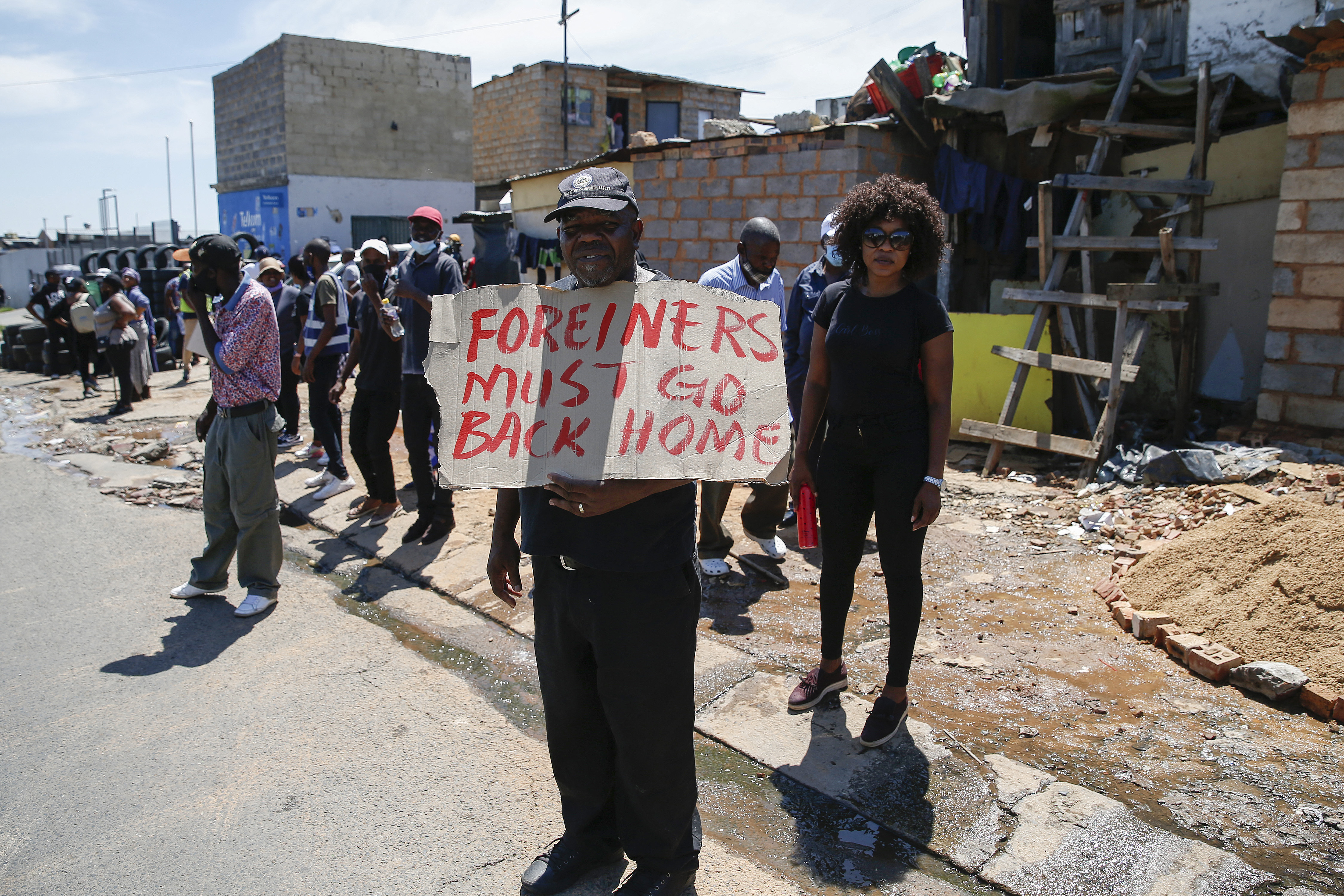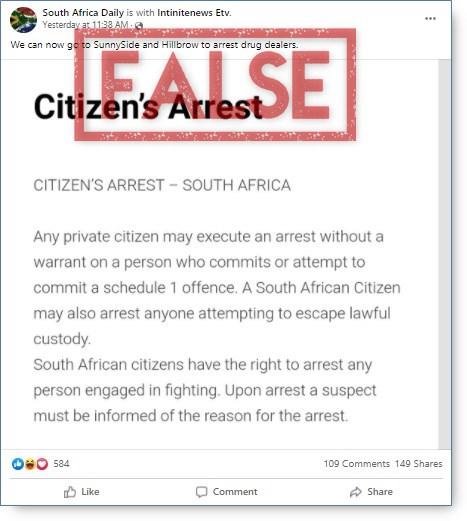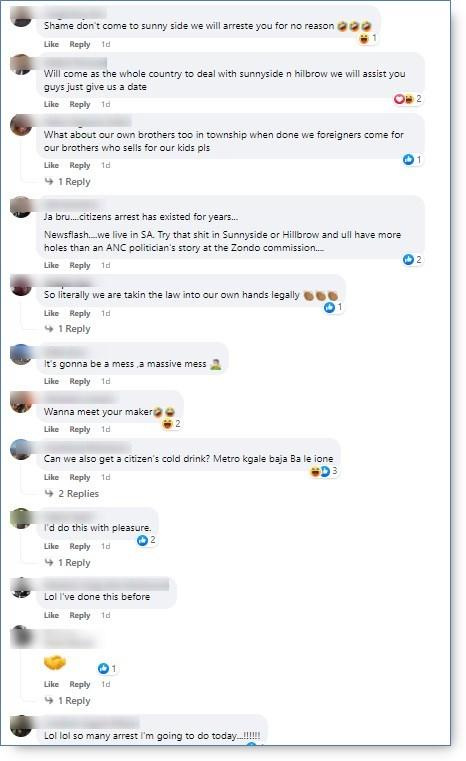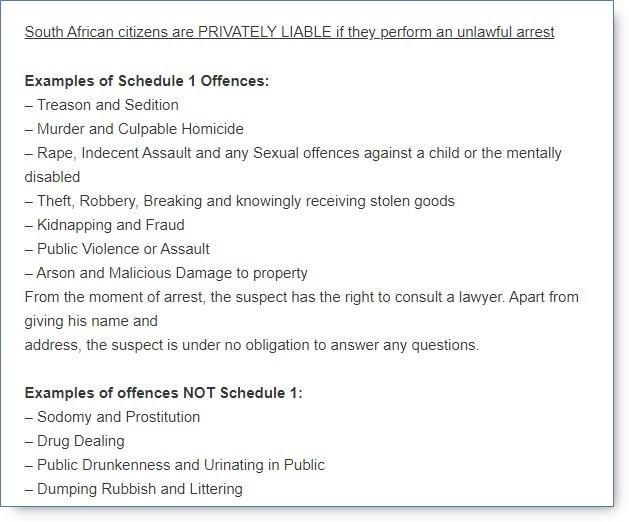
Facebook post falsely claims that South African law allows citizens to arrest drug dealers
- This article is more than four years old.
- Published on February 18, 2022 at 17:32
- 3 min read
- By Tendai DUBE, AFP South Africa
Violent protests were sparked this month in South Africa by members of a private movement called “Operation Dudula” which blames “undocumented immigrants” for “stealing jobs” and accuses them of being criminals, particularly drug dealers.
The Facebook post claiming that “we can now go … to arrest drug dealers” was published on February 13, 2022, amid the protests, and included a screenshot showing part of the law that deals with citizen arrests, which are restricted to schedule 1 offences in South Africa.

Missing from the screenshot is a list of which crimes fall under schedule 1.
Comments were mixed – some saw the post as an excuse to “take the law into our own hands legally” while others predicted it would likely end in bloodshed.

The screenshot appears to be a selective extract of a more detailed blog post from February 16, 2015, published on a site called Crime SA.
The blog author makes it clear that people who effect a citizen’s arrest are privately liable if it is later deemed unlawful. And, contrary to what the Facebook post claimed, the author explains that dealing drugs is “NOT a Schedule 1” offence, meaning it falls outside the provisions for a citizen’s arrest.

What the law says
Circumstances for arrests are laid out under South Africa's Criminal Procedure Act (CPA); this includes arrests by private citizens (see page 27, section 42), also known as citizen's arrests.
Citizens' arrests are only permited for Schedule 1 offenses, while dealing drugs falls under Schedule 2 offenses (see pages 186-187).
Specialist criminal lawyer Marlise Wooldridge, an attorney at Stegmanns Incorporated, told AFP Fact Check that South Africa’s Criminal Procedure Act (CPA) governs the arrest of individuals.
“The offence for which a civilian may arrest a person does not include offences relating to the possession or supply of dependence-producing drugs or intoxicating liquor,” said specialist criminal lawyer Marlise Wooldridge, an attorney at Stegmanns Incorporated.
“A civilian may therefore not arrest a drug dealer as the offence falls outside of the allowed offences as set out in Schedule 1 of the CPA.”
South African courts, Wooldridge said, “have ruled that a civilian is not permitted to arrest a person without an arrest warrant where the offence relates to the possession of illicit alcohol (which is grouped with the possession of dependence producing drugs)”, citing the case Morapedi v Springs Municipality 1946 TPD 105.
Wooldridge said an individual also risks being sued for unlawful arrest and damages.
“We would certainly not advise a civilian to arrest a suspected drug dealer unless called upon by a police officer or a member of a community policing forum to assist in arresting a person,” Wooldridge said.
“Operation Dudula”
The Facebook post making the false claim echoed similar sentiments shared on social media by supporters of “Operation Dudula”.
Dudula – meaning “to push” in isiZulu and isiXhosa – started as a campaign aimed at driving all undocumented foreigners out of South Africa. The movement emerged in the weeks leading up to the 45th anniversary of the Soweto uprising on June 16, 2021.
Members of the group have said that their cause is not xenophobic, although critics have voiced concern about their aims and tactics.
Copyright © AFP 2017-2026. Any commercial use of this content requires a subscription. Click here to find out more.
Is there content that you would like AFP to fact-check? Get in touch.
Contact us
